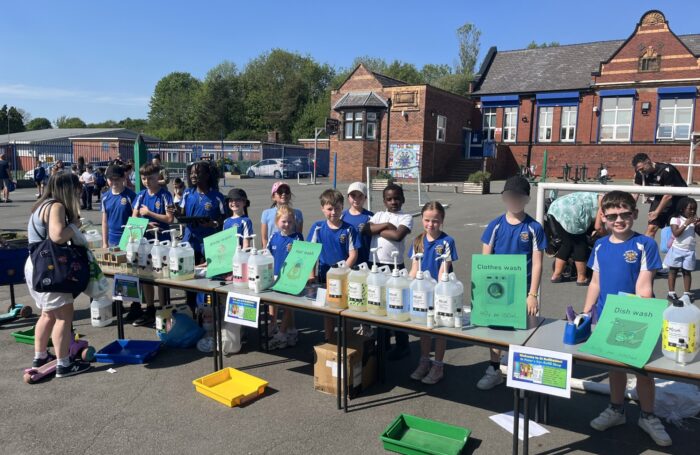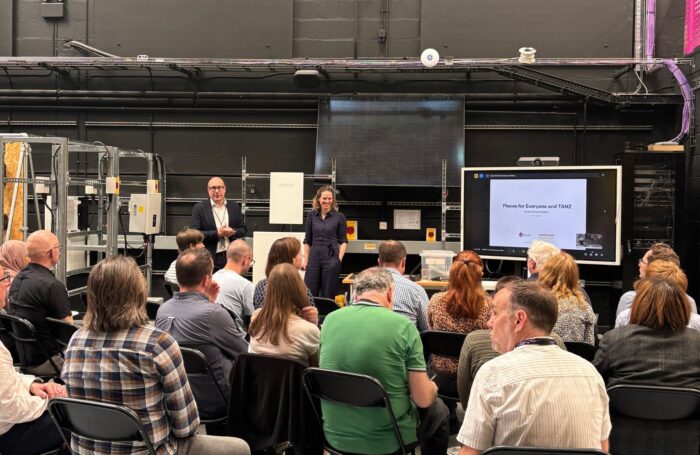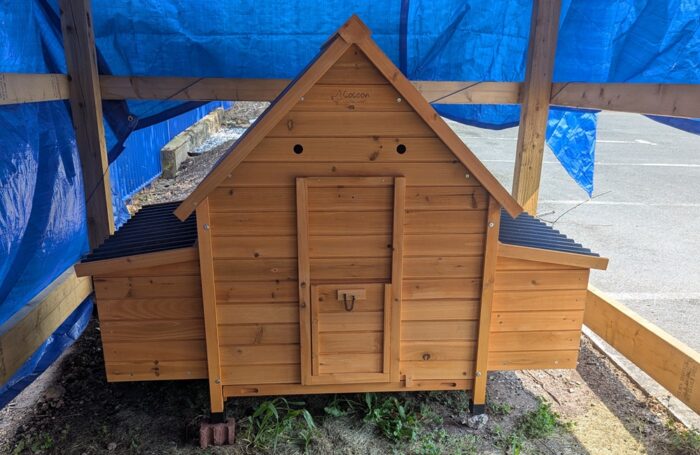Background
The growing need to conserve and enhance natural capital is well documented. We know that we are depleting natural resources faster than the earth can replenish them. To address this we need to bring about a reverse in the decline in our natural environment and the UK Government’s 25 Year Environment Plan aims “to be the first generation to leave the natural environment in a better state than we found it”.
To support delivery of the UK Governments 25 Year Environment Plan Greater Manchester was designated as the Urban Pioneer City Region which provided the opportunity to test new ways to value, manage and invest in our natural environment. Whilst the Urban Pioneer has now finished, we continue to continue to drive forward innovative natural capital approaches sharing the lessons learned so that other areas and organisations can take forward similar approaches.
There are a number of key learning points from delivering a natural capital approach that can be applied across a range of sectors to maximise the environmental, social and economic benefits that our natural environment provides to society.
Key Outcomes
Building political and stakeholder support: The Urban Pioneer acted as a catalyst to the natural capital sector, enabling it to collaborate with and build on existing initiatives and partnerships, unifying the language, direction and effort being delivered across the city region. This has also helped to accelerate the transition to a new way of thinking, to better understand the value of the natural environment and better inform delivery of key policy objectives.
Strategic planning: A lot of the work we have been delivering on natural capital has helped to shape priorities around the role of the natural environment within key strategies seeking to achieve measurable improvements through environmental net gain. This includes the production of the Greater Manchester 5-Year Environment Plan which sets an ambitious target for the city region to become carbon neutral by 2038. Our Places for Everyone joint plan includes policies to support the role that development can play in recovering nature, particularly the requirement for a minimum of 10% Biodiversity Net Gain from new development.
Development of innovative finance models to support natural capital investment: Greater Manchester was the first city-region in the UK to develop a Natural Capital Investment Plan – a plan that is being used to encourage investment in our natural environment to secure financial and social returns, as well as those for our environment. A key action from the investment plan is around developing new finance models to improve the quality and quantity of our natural environment including those around mitigating the impacts from new development on biodiversity and carbon through habitat banking and carbon trading.
Launch and delivery of the Greater Manchester Environment Fund: To support the development of these new finance models the Greater Manchester Environment Fund has been set up to channel more funding and investment into the natural environment, particularly organisations wanting to address their negative environmental impacts. Over time, we want to grow the fund to deliver more and want to work with forward thinking businesses in Greater Manchester who want to make a positive impact on our city-region’s environment and support funding environmental improvements.
Successes
The pandemic has thrown into sharp focus just how important the natural environment is to all of us, and despite all the challenges this has brought, the work we have done as a partnership has gone from strength to strength.
In the past year, City of Trees have planted over 150,000, trees, covering an area equivalent to 80 football pitches. On Chat Moss, our key lowland peat area of Salford and Wigan, partners have come together to buy land in a £700,000 project which will see peatland habitat restored, with benefits for biodiversity and carbon storage.
The multi-partner EU Life funded Natural Course project continues to look to identify and understand innovative and cost effective solutions to a range of water management issues. A number of exciting projects are leading the way in shaping the future of our local river valleys including the Resilient River Valleys, Our Rivers our City and Bringing the River Irk Back to Life projects.
The Greater Manchester Combined Authority has recently published a draft Local Nature Recovery Strategy (LNRS) – one of five pilot areas across England tasked with working with government to develop these strategies.
The Greater Manchester Environment Fund has already brought in £2m of funding to deliver projects on the ground to improve Greater Manchester’s environment. Through the £4m IGNITION project, we’ve also been developing the case for investment in nature based solutions in our towns and cities to help reduce the risks from increased flooding as a result of climate change. The University of Salford’s Living Lab is providing a real time demonstration hub to monitor and showcase how nature based solutions
There are now more organised programmes and projects that provide the opportunity to engage in a range of nature related activities including RHS Bridgewater in Salford, Northern Roots in Oldham, the GM Health and Social Partnership green social prescribing pilot, Groundwork’s community initiatives like the Eco-Streets project and City of Trees Citizen Foresters.
Challenges
Despite these successes, there remain a number of challenges in delivering what we need to do to reverse the depletion of our natural capital:
Influencing and embedding a natural capital approach in policy and decision making: Whilst existing and new relationships have been developed with a number of sectors including health and waste, further work and engagement is required to embed natural capital approaches across other sectors including future growth and infrastructure.
Delivering a natural capital stakeholder engagement programme: Following consultation with stakeholders it became apparent that the number of natural capital tools available can be overwhelming and confusing. A Greater Manchester Natural Capital User Guide has recently been produced which provides a one stop shop for all these resources including case studies on how these have been used in practice. At a national level the Ecosystem Knowledge Network provide a one stop shop for all things natural capital.
A significant amount of additional funding is still needed: A preliminary analysis performed as part of the Greater Manchester Environment Fund Investment Strategy identified a funding need for identified projects in excess of £100m over a 5-year period. Public and philanthropic capital is insufficient alone to meet the funding needed and there remains an urgent need to attract new sources of funding through new finance mechanisms. The Natural Environment Investment Readiness funded pilot project at Chat Moss in Salford will help us stimulate investment in the biodiversity and carbon benefits of restoring our valuable peatland habitats.
Applying the learning
Through the natural capital work we have delivered to date there are a number of key lessons learnt that can be applied:
How all this work fits together is the key: This isn’t just about delivering a number of projects but how you pull together a number of partnerships and headline activities into a comprehensive and targeted programme of activity, sharing the learning and helping everyone make better decisions to protect and improve the environment. Working in partnership and pooling resources enables schemes to go ahead that are not affordable for individual partners on their own.
Understand what you have – make the invisible, visible: The development of natural capital accounts and ecosystem service opportunity maps at a city region level, which at the time of publication contained a number of world firsts, have been used by many partners to further understanding, engagement and investment around the natural environment. Not only do these measure the benefits provided by the natural environment to businesses, public services and communities but also provide decision makers at all levels with the tools and evidence to make more informed, joined-up decisions.
Don’t reinvent the wheel, there’s lots of good practice out there: There are lots of examples and case studies of natural capital approaches being delivered across the country and we very much hope that the learning can help to inform similar approaches elsewhere, saving time and resources. All our resources are available on the GMCA and Green City Region Partnership websites as well as other platforms such as the Ecosystem Knowledge Network.
Conclusion / what next
This is a really exciting but also challenging time to be working on the natural environment. In Greater Manchester we will continue to lead on this agenda nationally and to do that, the Mayor has also made nature a key part of his priorities. This includes:
- Signing up to Edinburgh Declaration on biodiversity
- Developing a Mayors Green Spaces Fund which will help to provide grants to provide new or improved local green spaces in places where they are needed the most.
- Appointing a Local Nature Champion
All of this will further our ambitions to get more residents, communities and businesses connected to nature.
If you are new to or already working on the natural environment agenda my advice to you is to be ambitious and to get you started think about the small steps that can really make a big difference. This could simply be about supporting a local nature project or making your garden, balcony or back yard a nature and climate friendly. If everyone does one thing for nature, we can make a real difference and you’ll feel happier and healthier too. Find out ways you can take action.
If you’re a business you can make your premises and buildings a nature friendly and relaxing space. The ‘Nature-based solutions to the climate emergency: The benefits to business and society’ report is the first business-facing resource created by the IGNITION project, produced in partnership with Business in the Community (BITC) and Greater Manchester Combined Authorities (GMCA). All these actions are working towards making Greater Manchester a cleaner, greener place to live and work in.
We all need to change thinking to move from a burden agenda to a benefit agenda, because it is the future. This doesn’t happen over night and there is no easy solution but we know that a `business as usual’ approach will not get us to our longer term goals. There is still a lot of work to be done but setting the foundations provides a firm basis to start looking at financial models and the much needed investment in our natural environment.



